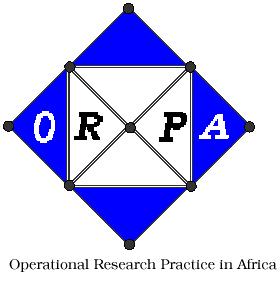|
|
|
Plenary SpeakersAdnan Yassine
Directeur Adjoint du Laboratoire de Mathématiques Appliquées du Havre (LMAH). Directeur Délégué de Recherche à l’ISEL (Institut Supérieur d’Etudes Logistiques). Coordinateur du Grand Réseau de Recherche « Logistique-Mobilité-Numérique » (GRR LMN) de la région de la Haute Normandie. Sujet :Optimisation des flux physiques sur un terminal roulier. Résumé :l’allocation d’un navire à un poste à quai dans un terminal roulier doit tenir compte de plusieurs facteurs importants tels que la disponibilité des postes à quai, la compatibilité entre le navire et le poste à quai (profondeur d’eau, longueur de quai, type de navire, etc.), certaines règles de priorité concernant les problèmes de sécurité et de l’intérêt général, les distances entre les postes à quai et les zones dédiées au stockage de voitures et les capacités de ces dernières, les règles de gestion adoptées par les différents opérateurs de stockage, le nombre de voitures et le risque de croisements, etc. Notre objectif dans ce travail est de développer un système d’aide à la décision pour optimiser les flux physiques en minimisant à la fois le temps d’attente en mer et aux postes à quai, la distance globale à parcourir par les voitures sur le terminal et les croisements entre les flux de voitures sur le terminal. Hans Ittmann
ILTS (Africa), University of Johannesburg, Johannesburg, South Africa 0002. Title of presentation (1) Freight Transport Planning and Modelling - its application within a rail environment Abstract The movement of freight is an integral part of an economy in a country. Sufficient, appropriate and reliable transport remains an essential element for sustained economic growth. The production and consumption of goods and services are usually physically separated which requires the distance between the two needs to be bridged by means of at least one mode of transportation. Providing the necessary capacity for the different modes of transport requires careful and proper planning. In this regard the forecasting of future demand is a critical component of the planning function. This paper will endeavour to present a short review of the planning process, of freight transport modelling and then discuss the use and application of different models within a rail environment. Various tools have been developed to assist in the planning of future rail capacity and infrastructure. The paper will also endeavour to illustrate the importance of an appropriate planning philosophy for long-term planning. Title of presentation (2): City Logistics and Urban Freight Transport Challenges in Developing Countries Abstract: Cities world-wide are growing larger and larger as the trend towards urbanisation increases almost on a daily basis. Many of those attracted to cities are faced with unemployment. In an effort to survive from day to day many small businesses are established by those trying to just exist. This scenario is typical of developing countries. South Africa is unique in the sense that a first world economy co-exists within a developing country with a third world economy. This paper will endeavour to outline the concept of City Logistics and also address the challenges of urban freight transport. In addition “small business logistics” challenges faced by small businesses in urban areas will be highlighted. The use of Operations Research as a scientific approach to problems solving to address these challenges, will be presented.
Ridha Mahjoub
Sheetal Silal
Title : Hitting a moving target: Analysing epidemiology using Operational Research Abstract. Infectious diseases pose the greatest challenge to the health of African people with the leading causes of disease burden being lower respiratory infections, HIV/Aids, diarrheal diseases and malaria. It is necessary for countries to be able to manage existing disease levels and to combat epidemics as and when they occur. The Operational Research armamentarium has within it tools to assist with the containment of diseases, predicting optimal resource allocation, strategies to minimize the evolution of drug resistance, assessment of new interventions to interrupt disease transmission, and the assessment of operational feasibility. This talk will provide an overview of current OR practice in epidemiology across the globe as well as some of my research in mathematical modelling for the elimination of malaria in South Africa. bio : Dr Sheetal Silal is a lecturer and researcher in the Department of Statistical Sciences, Faculty of Science at the University of Cape Town, South Africa, where she completed both her MSc in Operational Research in Development and PhD. Her primary research area is the mathematical modelling of infectious diseases with particular focus on malaria elimination efforts in South Africa. Through the use of population and metapopulation-level differential equation models and agent-based simulation, she aims to analyse malaria transmission dynamics and project the impact of proposed policies and interventions. Apart from performing research at the University of Cape Town, Sheetal spends her time supervising MSc and PhD students and teaching Statistics and Operational Research across undergraduate and postgraduate programmes. |






